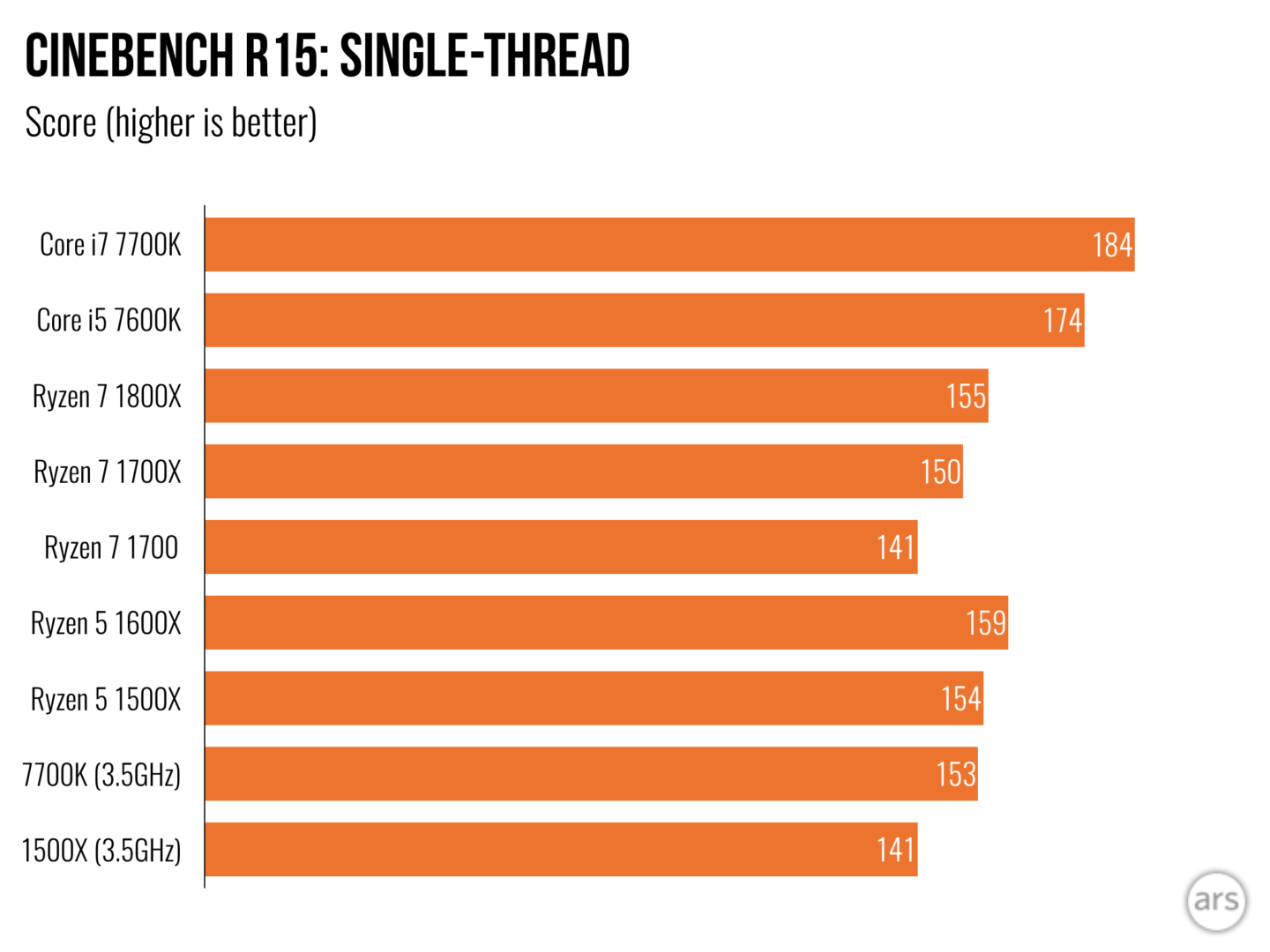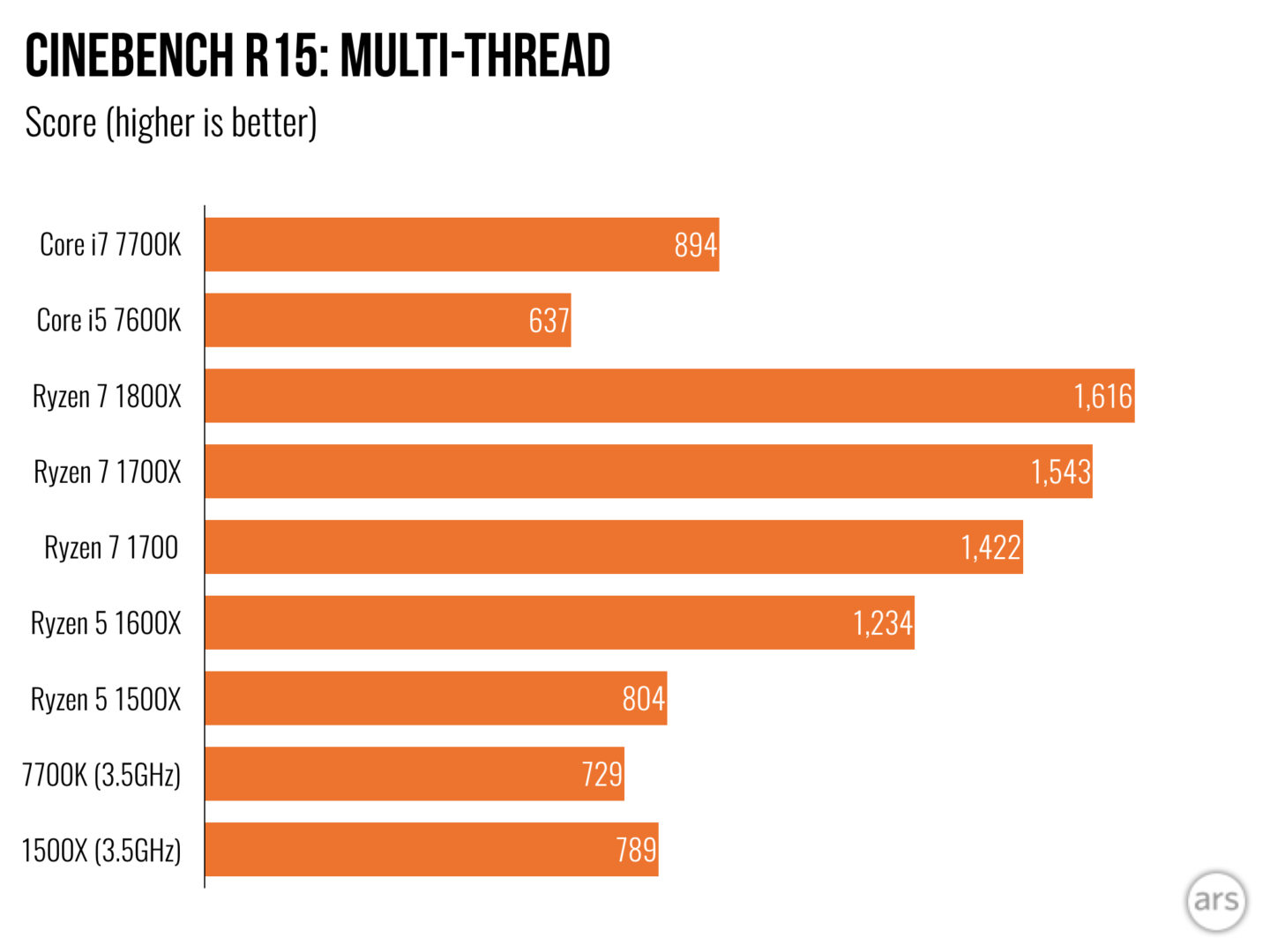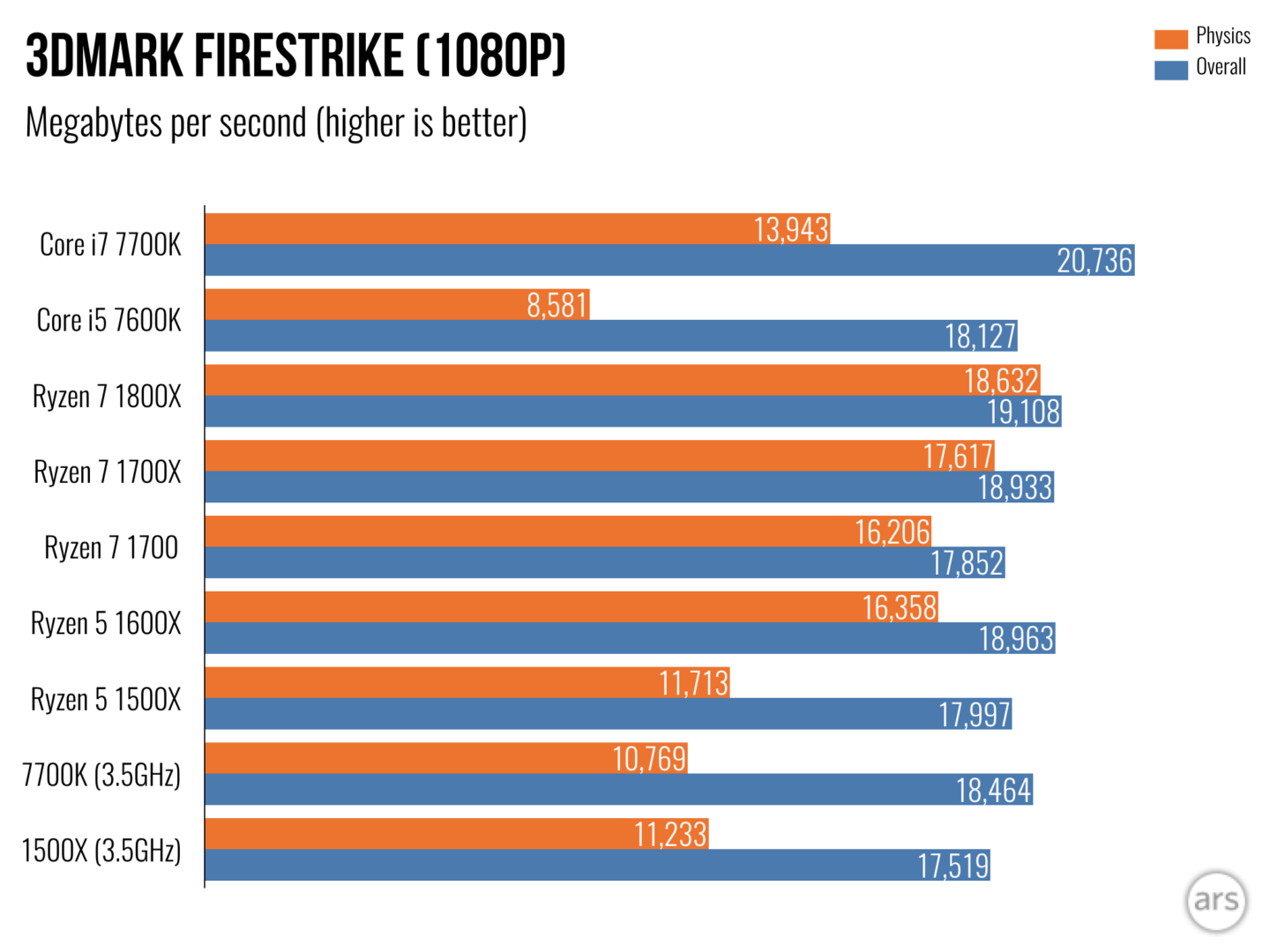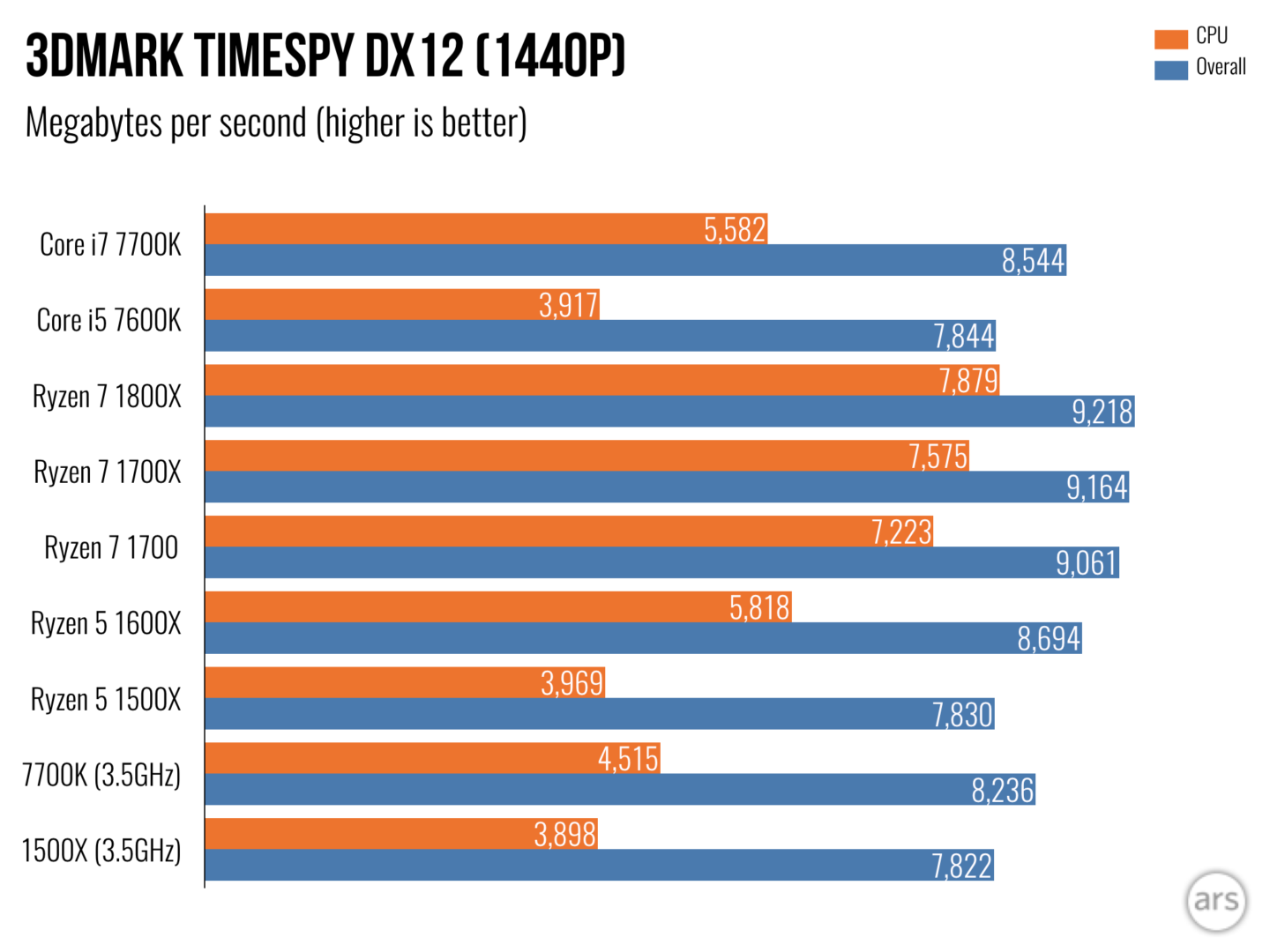Processors FAQ
Q How does IPC compare between AMD's Ryzen and Intel's Kaby Lake?
A Ryzen’s IPC nearly matches Kaby Lake but at worst lags by 9%.
What is IPC and how is it calculated?
"IPC (Instructions per cycle) refers to the number of calculations a CPU can perform per clock cycle. If two CPUs have the same IPC they will have the same performance at the same frequency. For the practical purpose of comparing performance between different CPU architectures a workload that represents “typical use” is tested on both CPUs at the same clock speed to produce an IPC figure per core. IPC is measured under multi-core workloads to ensure that the resulting figures reflect total processing throughput. When the relative IPC between architectures is known, it simplifies comparisons between them.
Turbo Boost.
Nearly all modern CPUs have the ability to turbo boost. Historically turbo boost would only engage whilst some cores were idle but on recent architectures, including both Skylake and Kaby Lake, turbo boost can engage even whilst all cores are active. This obfuscates the meaning of base clock which can no longer be used for meaningful comparisons. For example the Skylake Core i5-6400 has a base clock of 2.7 GHz but all four cores are able to turbo to 3.1 GHz which gives it an effective base clock of 3.1 GHz. We don’t yet know under what conditions and to what extent Ryzen chips are able to turbo boost.
Skylake and Kaby Lake have the same IPC.
Taking the Kaby Lake i5-7500 which has a quad core boost frequency of 3.6 GHz and the Skylake i5-6600 which also has a quad core boost frequency of 3.6 GHz, then comparing the quad core mixed performance shows that they
score 452 and 451 respectively. This demonstrates near identical IPC between Kaby Lake and Skylake (
averaged over 11,000+ samples).
Kaby Lake vs Ryzen IPC estimate (Feb 27, 2017). (Note the Date!)
Until we know the exact frequency profile of Ryzen under various loads we can only estimate its IPC.
Assuming the Ryzen 1700X operates at 3.4 GHz under quad core load (possible scenario):
(Ryzen 1700X = 416) vs (6700T with 3.4 GHZ boost = 418) implies
Ryzen IPC equals Kaby Lake.
Assuming the Ryzen 1700X operates at 3.6 GHz under quad core load (less likely scenario):
(Ryzen 1700X = 416) vs (7500 = 452) implies
Ryzen's IPC lags Kaby Lake's by 9%.
Assuming the Ryzen 1700X operates at 3.5 GHz under quad core load (most likely scenario):
Extrapolating from the above two results implies that
Ryzen's IPC lags Kaby Lake's by 4.6%.
Conclusion.
Based on the small handful of samples we have seen,
Ryzen's IPC could match Kaby Lake but
at worst lags by 9%. The big unknown is Ryzen's overclockability as this will determine the actual performance levels delivered. The Kaby Lake 7700K can comfortably hold 4.8 GHz so, under quad core workloads the 1700X would have to overclock to 4.8 GHz or better in order to beat it. On the other hand, on an eight core workload assuming a clock speed of 3.4 GHz (stock) for the 1700X and 4.8 GHz (overclocked) for the 7700K, the 1700X wins by a whopping 41%. Even though these preliminary results are based on a limited number of samples one thing is for sure: Christmas has come early for workstation users."
http://cpu.userbenchmark.com/Faq/How-does-IPC-compare-between-AMDs-Ryzen-and-Intels-Kaby-Lake/108















